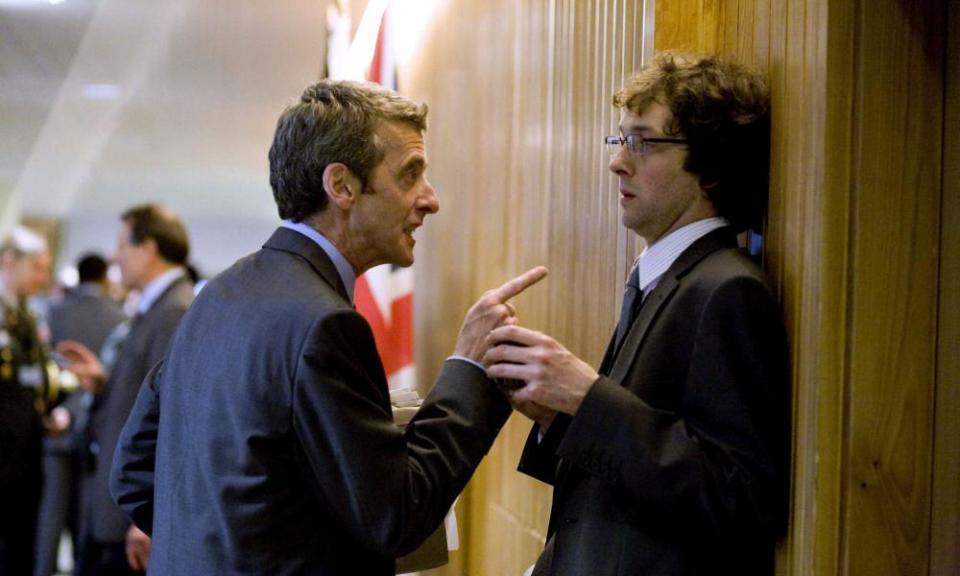WTF! Now swearing on telly is off the taboo list

Sometimes, as Mark Twain so elegantly put it, “profanity provides a relief denied even to prayer”. In other words, when your boss is driving you mad, your kids are screaming, you’ve been on hold to your failing energy provider for longer than it would take to generate your own electricity and you’ve just dropped a hammer on your foot, the universe demands a long, lustily delivered “FUCK THIS!”. For at that point, no god is coming to save you.
But if the relief derives from the feeling of transgression, what happens when the taboo is lifted? The results of an Ofcom survey released last week suggests that swearing – as we perceive it via our television screens – no longer has the shock value it once did; and that we may no longer have much use for euphemisms such as “fudge”, “sugar” and “see you next Tuesday”. Certainly, the memorable “seven dirty words” routine created by American comedian George Carlin in the 1970s, which led to his repeated arrest and a government ruling in favour of continued censorship, is almost impossible to imagine.
Yet language remains a marker to analyse what societies do consider offensive. While Ofcom discovered that TV audiences appear increasingly relaxed about swearing – at least if post-watershed and, in the case of a live broadcast, if promptly noted by presenters – they are alive to the power of discriminatory language to entrench and perpetuate inequality. Consequently, viewers – with caveats for variations between age groups and according to context – are no longer prepared to accept seeing characters in blackface, or to hear racist or homophobic epithets or phrases.
But we should be wary before celebrating a victory for progressive and inclusive values. At a basic level, what people tell surveys and what language they tolerate and themselves use in other situations are not always the same thing; it’s all too easy to give the answers that will create a picture of oneself as a right-thinking respondent.
And there’s a sharp contrast between the image of a society aware of the power of language to oppress and marginalise and the aggression and vitriol frequently seen on social media.
Take, for example, some of the responses to the Marylebone Cricket Club’s announcement last week that it will henceforth use the word “batter” rather than batsman to describe a player advancing to the crease. For those opposed to the change, there is the familiar sense of the resistance to territory being ceded; the idea that the encroachment of, in this instance, women cricketers into a traditionally male-dominated arena is now being not merely accepted but encouraged and codified. Here, a single word bears the weight of a larger shift, and of the unease it generates, the fear that this is the thin end of the wedge. That cricket fans comfortably use the words fielder and bowler appears not to matter, because logic is subordinate to far more deeply rooted fears. And the argument that being called a batter does little to diminish the lives of male cricketers is irrelevant to the knottier problems that surround status anxiety.
Related: Why are Britons complaining more about what’s on TV?
One would know little of this from the behaviour of the ruling government and, in particular, our prime minister, who continually codes himself as a bewildering amalgam of plain speaker and foppish classicist. His most recent foray into Franglais, which featured him asking the French to “prenez un grip” and “donnez-moi un break” in the aftermath of the Aukus row, is a prime example of his undoubted talent for wrongfooting commentators by playing the clown, all the while radiating reassuring messages to his base. On the surface, there is haplessness, an inappropriately larky tone, dismissiveness of the global powers lining up to shun the UK; beneath it is the anachronistic language of the blithe British exceptionalist, the after-dinner speaker peppering his address with nods and winks to an audience who, he is sure, thinks the same as he does about Johnny Foreigner.
It works well for him and – by no means coincidentally – it strengthens the perception of a chasm; between those who are concentrating their energies on ensuring a level playing field between citizens and those who will say what they damn well please. Think Kermit was an ill-judged joke? Think again.
The gap between a speech act and the complex reality it is trying – and always, inevitably, failing – to describe is a given. But it is also the gap through which untruth and distortions sneak. When changes in usage are accelerated by online culture, we may take our eyes off the gap. We shouldn’t.

 Yahoo Movies
Yahoo Movies 